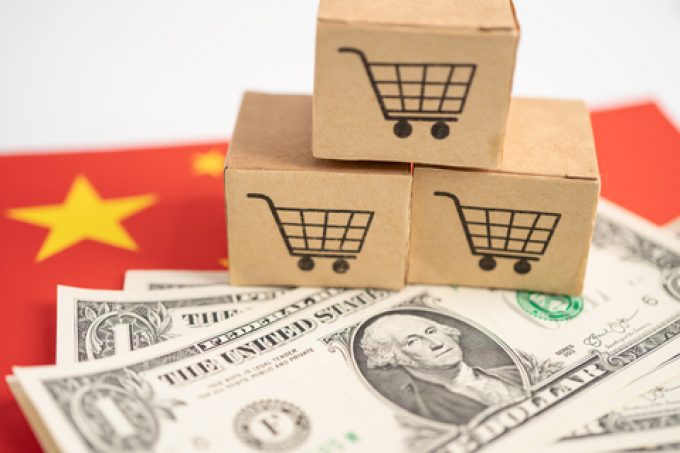Risk Intelligence: Houthis lack resources for Med attacks
Houthi threats to widen their area of operations amount to bluster and propaganda, and “should ...

The Loadstar is running a series of reports on the ecommerce sector, which has been driving growth in air cargo. But are there clouds on the horizon? Very possibly, writes John Manners-Bell, CEO of Transport intelligence
Ecommerce volumes have become critical to the success of the international air cargo sector in the past few years. However, there is a real threat that laws being proposed by US lawmakers – with backing from right across the political spectrum – will undermine the growth of the industry.
Facilitating the movement of millions of packages around the world are ‘de minimis’ thresholds which allow goods with a value of less than a certain value to be imported without duties or tariffs. In the US, this threshold is set at $800 per buyer per day. Many of these goods are bought over digital platforms and shipped using postal services. The lack of taxes combined with low-cost shipping via the postal service has allowed US consumers to benefit from cheap imported goods, resulting in the exponential growth of the market.
According to a report by Associated Press, a billion de minimis packages were imported into the US in 2023, compared with just 134 million in 2015. The value of China’s online export sales to the US increased in 2023 by 20% to $257bn (although this figure also includes goods which do attract tax). According to the House Select Committee on China’s Communist Party, Chinese e-retail platforms Shein and Temu were responsible for about a third of de minimis shipments. This has made the issue politically explosive, especially in the run up to the presidential election.
It is very likely that Presidents Trump and Biden will fight their campaigns on a similar manifesto, at least in relation to trade policy, and putting barriers in the way of Chinese companies exporting to the US will play out well with some parts of the electorate. Their likely stance on the issue is supported by some industry organisations. For instance, the National Council of Textile Organisations (NCTO) has argued that the tariff waiver mechanism is flawed and has directly resulted in 14 textile factories being shut down in the US in the past few months. It believes that de minimis levels should not apply to ‘sensitive sectors’, specifically textiles, which, it says, account for half of shipments imported in this way.
The NCTO said: “China’s abuse of the de minimis loophole [sic] impacts not only American workers and consumers but has also displaced over 100,000 textile and apparel workers throughout the Western Hemisphere, where our free trade partners are forced to compete with China’s unfair de minimis access.”
In addition, the organisation highlighted another issue: the abuse of the system to import illegal goods and drugs into the US. “The de minimis threshold is a hotbed of trafficking in illicit goods, illegal products and other contraband, including deadly fentanyl.”
The reason for this, according to the NCTO, is the sheer volume of shipments being processed on a daily basis which means that US Customs is not able to effectively screen all the packages. This assertion, however, is hotly disputed by another organisation, the National Foreign Trade Council (NFTC). It puts the other side of the argument, saying the Customs and Border Protection (CBP) agency screens these low-value shipments to the same standard as higher-value entries.
The final complaint levied by critics is that shipments imported under the de minimis rules are more likely to include products made by forced labour, undermining enforcement of the Uyghur Forced Labor Prevention Act. This too is disputed. According to Department for Homeland Security undersecretary Robert Silvers, a risk-based approach to enforcing the act applies equally to de minimis shipments as any others, although he does admit that there are challenges.
Set against these accusations are the benefits of the regime to US consumers and small businesses. The low-cost goods on offer are, inevitably, hugely popular as evidenced by the growth of the market. This has had a deflationary effect on the economy and allows goods to be imported with a minimum of red tape. Without the waiver, many goods would double in price, hitting the lowest earners the hardest.
The impact of ecommerce shipments on the air cargo sector is significant, apparently causing capacity shortages even in the off-peak season (now). During a period of economic downturn, it has provided a lifeline to the sector, although some are warning that continued growth will have an impact on rates in the run-up to the holiday season. In response, cargo airlines, such as Atlas Air, are upping the number of services between China and the US.
However, given US politicians’ appetite for shutting down Chinese platforms, with TikTok presently in the crosshairs, there is no guarantee that this buoyant market will continue for ever.
Comment on this article